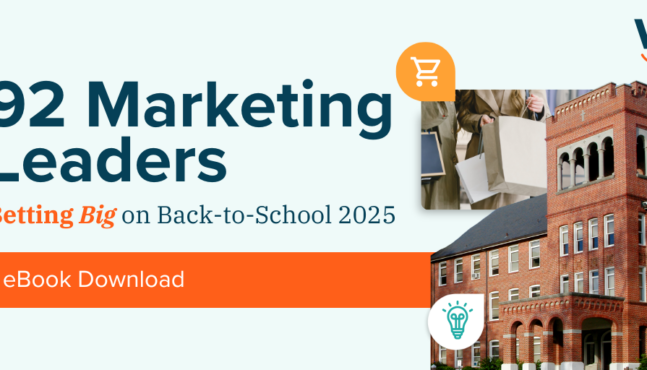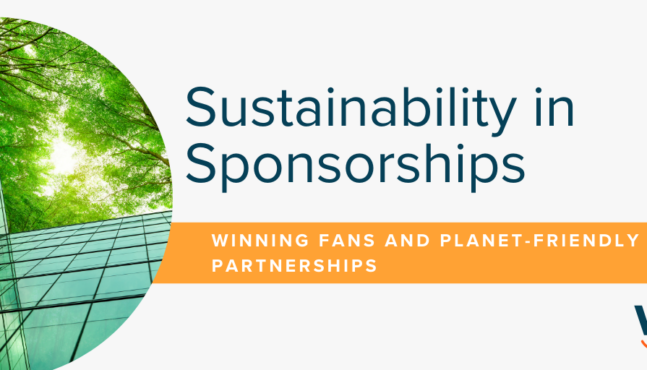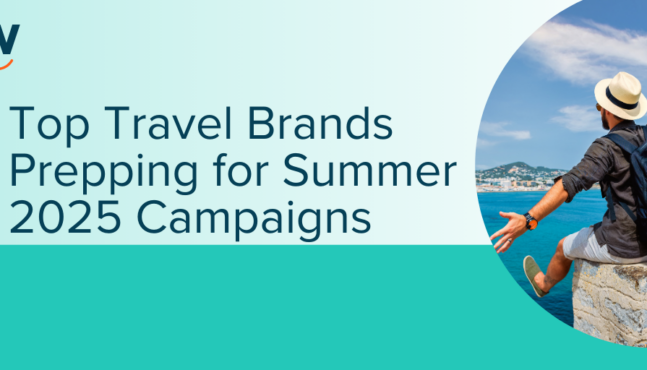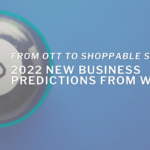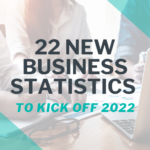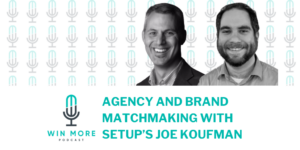
Agency and Brand Matchmaking with Setup’s Joe Koufman
Welcome to the Win More podcast… well, a transcription of it. Every week, Winmo’s advertising industry guru John Zaldonis (and his arsenal of expert guest-hosts) unpacks actionable sales leads with top brands and agencies. If you missed last week’s recording, John hosted Joe Koufman, Founder and CEO at Setup, a marketing matchmaker focused on connecting brands with compatible marketing agencies.
Read their discussion on the ongoing evolution of successful client/agency relationships through the pandemic below.
John Zaldonis: Welcome to the Win More podcast. My name is John Zaldonis. Listeners, we have another wonderful episode on tap for everybody today. As I think I’ve said before on some shows, some of my favorite episodes are when we bring, guests in from outside the company, some new voices with respect to my wonderful coworkers, no offense there. But certainly, today’s episode fits that bill. Joining me today is Joe Koufman, the founder and CEO at Setup. Joe, welcome to the show.
Joe Koufman: Hey, thanks for having me, John. I’m excited to be here.
JZ: I’m excited to have you. We have a lot of fun stuff to talk about like brand-agency relationships. We’ve talked about it many times on the podcast, but you have a really good perspective. Joe, you’re here to tell us about your particular expertise in client-agency relationships. I want to get into, not only how they’re formed, but also a look ahead into 2022. How do we think these relationships are going to evolve?
I would love it if you could give our listeners a little bit of a background on Setup. How did the company begin in 2014?
JK: I graduated from college in North Carolina and then moved to New Orleans for four years, working in retail. And then they moved me to Jackson Hole, Wyoming, and then to Atlanta. I spent eight years at Dotcom and it was essentially a software directory. Our biggest competitor went public and used half of the money. They raised $130 million in their IPO. And then they bought what was called KnowledgeStorm for $58 million.
And then I went to work for a small digital shop that soon got acquired by a larger full-service agency called Engauge. I spent six years there running marketing and business development. And then we were acquired by Publicis Group in 2013 and merged with an agency called Moxie. Engauge, we were probably 250 to 275 people and Moxie was about 350 people. So we were pretty quickly a 600 person agency owned by the Publicis Group, a massive holding company.
After four or five months there, it became clear to me while it was a great agency, it just wasn’t the same small shop that I had joined six years earlier. I had friends that really wanted me to start an agency of my own, but the reality was I never really wanted to build websites, do social media, or create content. I really loved the matchmaking. So I had the idea for what is now Setup and floated it to a couple of agencies early in 2014, that we would be a shared business development resource across multiple agencies. And they bought it. They loved the idea, I hired my first employee, and the rest is history.
Almost eight years later, we are working with brands and agencies across the US, and even some global work too, to make connections. The model is largely the same as it was when I started the company eight years ago, except that initially we only had one agency of each discipline. So that if the client came to us and needed social media, we handed them the one social media agency we work with. It’s changed a little in that. What we found was that when clients hire agencies, they’re not just looking for capability. Can the agency do the work that they need done and give them the help they need? But also chemistry.
Any good matchmaker will tell you that, on paper is different than when you finally meet in person or digitally. Once we help the client understand, or clarify what they’re trying to accomplish, it’s better to introduce them to three or four different agencies to make a selection.
JZ: One of the things that we’ve talked about ad nauseam on this podcast is company culture. But there are also cultural fits with brands and agencies and whether or not they will work together. There are obviously so many other factors that get into that. Some of which I hope we can tackle right here. So let’s use that as a springboard.
What are some of the most important factors that dictate whether or not these relationships are successful?
JK: We do an annual marketing relationship survey with marketers at large brands and some agency people, too. Earlier this year, Ad Age wrote an article about the story. And one of the questions that we asked during that survey is, what variables are important to you when working with an agency or selecting an agency partner? How many awards an agency has won? Most clients don’t really care so much about that. The seniority of the team is somewhat important, but not as much as specialized capabilities.
The reality is that clients want agencies that can do the work that they need help with. However, the good news for agency folks and brands is that these are all controllable. You can control your physical location, you can control the seniority of your team. But creativity, professionalism, chemistry, and cost can be built. The chemistry between client and agency is super important and cost has to be reasonable.
Some of the variables that are super important to the relationship are transparency, vulnerability, and employee retention because agencies are notorious for high turnover. And the problem with high turnover is that institutional knowledge about the client’s business walks out the door. The two most important things in relationships are expectations and communication. Set clear expectations about what the client is looking for and what the agency can realistically deliver. Then, communicate that and make sure there’s two-way communication.
JZ: Institutional knowledge and communication have become more and more valuable.
It could be as simple as me hopping on with my coworker, Rob, to talk about what’s coming down the product pipeline. We work together to ensure we’re on the same page. It’s more challenging now, but it’s also more important than ever.
JK: It’s overwhelming with the preponderance of communication channels today. You could communicate through LinkedIn, Slack, email, or Zoom. There are so many potential channels you must set clear expectations up front. So when is it appropriate to send me a text versus a Slack? Establishing that upfront will lead to fewer headaches later.
JZ: You did an event recently where you pondered this question of the client-agency relationship.
JK: We were inspired by Men are from Mars, Women are from Venus. It was meant to be an event where the agencies would have a chance to tell the clients on the call what they really wished that they knew and vice versa. Brands really wish that agencies knew they’re real strategic partners.
But strategically, they wish that agencies would help them navigate the bureaucratic red tape that often exists within the client organization. They want agencies to act as an extension of their team and understand that those crazy outlandish, creative ideas aren’t always executable. And then they want agencies to understand the brand’s business fully to deliver better work.
Agencies wish the client would be patient and answer their questions, whether that’s in the pitch process upfront, or even after they’ve become a client. Usually, agencies ask for clarification for good reason. They wish the client would lean on the agency for their expertise. Be clear about critical information upfront if there are internal politics. Also, understand the agency’s bandwidth and limitations and treat the team with respect. Both the brands and the agencies wish that the other would be more strategic. But for that to be a reality, there has to be transparency.
JZ: It’s been a while since somebody reminded me that book’s out there.
When working with brands that are new to the process of evaluating agencies, what are some of the common pitfalls that they should avoid? Any advice that you can give them to best navigate that early process?
JK: Even for veteran clients, just as you’re thinking about hiring your next agency, what are the steps you should take? We actually have created a great deal of content to help think through this process. We have a resources section on our site and a guide to finding a marketing agency. Some of the things in that guide are mapping out your objectives and your key performance indicators upfront. So what are you trying to accomplish, where do you feel agency support could help you accomplish those goals?
Secondly, assess the internal team and their capabilities. And then fill some of those gaps. Once you identify those gaps where you feel an agency could support you, then you’re seeking an agency that has those specific skills. Sometimes clients are very guarded with things like their timelines, budget, and internal politics. To get the best agency for you, it’s super important to be clear. Be honest and forthright. Ask the agency to give you the best work they can give for your budget.
JZ: If our listeners wanted to work with you moving forward, how should they do that?
JK: Our website is, setup.us. That’s the best way to get in touch, but we’re also on all of the social platforms.
JZ: There we go. Well, Joe, thank you once again for coming to this show today, I’ve had a wonderful time. I will simply close then by saying, listeners, thank you so much for listening. We will be back to talk to you all very soon.
Listen to the rest of John and Joe’s interview on Spotify, Apple, or Soundcloud.

